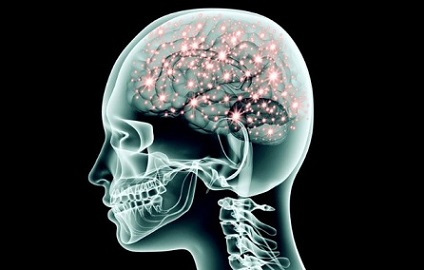COVID-19 News: New York Doctors Warn That Even Mild COVID-19 Can Lead To Anti N-Methyl-D-Aspartate Autoimmune Encephalitis With Psychotic Symptoms!
Nikhil Prasad Fact checked by:Thailand Medical News Team Dec 20, 2023 1 year, 3 months, 4 weeks, 1 day, 12 hours ago
COVID-19 News: As the COVID-19 pandemic continues to unfold, researchers and healthcare professionals are uncovering new dimensions of the virus's impact on various bodily systems. Recent findings from the Department of Psychiatry at New York University Langone Medical Center have illuminated a worrisome connection between mild COVID-19 cases and a rare autoimmune condition known as anti-N-methyl-D-aspartate receptor autoimmune encephalitis (anti-NMDAR AE). This discovery challenges our previous assumptions about the severity of COVID-19 symptoms and their potential long-term consequences on mental health.

Thailand
Medical News would like to add that many are unaware that there is a growing incidence rate of psychosis and many other psychological and psychiatric issues in many countries and that in many cases, SARS-CoV-2 is actually the culprit either directly or indirectly.
Also, the incidence of SARS-CoV-2 infection or COVID-19 vaccine induced anti-N-methyl-D-aspartate receptor autoimmune encephalitis is not as rare as claimed as there has been many
COVID-19 News coverages, case reports and studies on it.
https://journals.lww.com/md-journal/fulltext/2022/09020/anti_n_methyl_d_aspartate_receptor_encephalitis.114.aspx
https://journals.sbmu.ac.ir/ijcn/article/view/38280
https://jmedicalcasereports.biomedcentral.com/articles/10.1186/s13256-023-03979-x
https://www.tandfonline.com/doi/full/10.1080/21645515.2022.2033540
https://www.frontiersin.org/articles/10.3389/fneur.2021.764197/full
https://www.frontiersin.org/articles/10.3389/fimmu.2022.825103/full
https://www.frontiersin.org/articles/10.3389/fimmu.2022.825103/full
https://www.tandfonline.com/doi/full/10.1080/23744235.2021.1977381
Autoimmune Encephalitis: Unraveling the Mysteries
Psychosis, commonly associated with psychiatric disorders, can also manifest due to infectious, metabolic, or autoimmune disorders. A distinctive form of autoimmune encephalitis, caused by autoantibodies against N-methyl-D-aspartate receptors (NMDAR), has rec
ently garnered attention for its unique presentation. This autoimmune condition often begins with psychotic symptoms before progressing to neurological manifestations, including abnormal movements, catatonia, seizures, and autonomic dysregulation.
Traditionally, anti-NMDAR AE has been associated with malignancies, particularly teratomas of the ovaries. However, recent studies have identified a link between this autoimmune condition and infections, such as the herpes simplex virus. The emergence of the severe acute respiratory syndrome coronavirus 2 (SARS-CoV-2), responsible for COVID-19, as a potential trigger for anti-NMDAR AE adds a new layer of complexity to our understanding of COVID-19's impact on the nervous system.
The Case: Mild COVID-19 Leading to Autoimmune Encephalitis
The reported case involves a 17-year-old male adolescent who, despite experiencing only mild COVID-19 symptoms, developed anti-NMDAR AE shortly after recovery. The symptoms included psychosis with auditory and visual hallucinations, fluctuating mental status, and an isolated seizure, all of which worsened over time. Notably, the patient had no prior psychiatric history, making the case particularly remarkable and raising concerns about the potential neuropsychiatric consequences of even mild COVID-19 cases.
Clinical Findings and Diagnostic Journey
The adolescent's diagnostic journey commenced with an episode of disorganized and aggressive behavior, prompting an emergency room visit. Initial psychiatric evaluation suggested a primary psychotic disorder, leading to the initiation of antipsychotic treatment. However, as symptoms worsened and neurological manifestations appeared, a more thorough diagnostic workup was initiated.
The subsequent clinical findings were extensive and alarming. The patient displayed intense affect, confusion, hallucinations, paranoia, and catatonic features. A maculopapular rash on the patient's chest and back, which had developed weeks before the initial presentation, added another layer to the complexity. Neurological symptoms, including dysarthria and gait ataxia, further raised concerns about the multifaceted nature of the condition.
A Delayed but Definitive Diagnosis
The diagnostic journey involved multiple tests, including cerebrospinal fluid analysis, which ultimately revealed the presence of autoantibodies against NMDAR. Despite delays in confirming the diagnosis, the initiation of immunomodulatory therapy, including methylprednisolone, intravenous immunoglobulins (IVIG), and rituximab, halted symptom progression. The patient achieved full recovery within two months, underscoring the critical importance of prompt intervention in such cases.
Discussion: Clinical and Academic Implications
This case raises several crucial points with significant clinical and academic implications. Firstly, the onset of anti-NMDAR AE can be predominantly psychiatric, delaying diagnosis and treatment initiation. In this case, psychosocial factors, such as trauma during detainment, initially diverted attention from the underlying organic cause.
Secondly, the emerging association between COVID-19 and anti-NMDAR AE warrants careful consideration in cases of acutely emerging psychiatric symptoms following a recent SARS-CoV-2 infection, even in mild or asymptomatic cases. While the association does not imply causality, the temporal link between COVID-19 symptoms and the development of anti-NMDAR AE in this and other cases, coupled with the known neurotropic properties of the SARS-CoV-2 virus, suggests that autoimmunity could develop in response to exposure of neuronal antigens during acute infection.
The patient's perspective, shared post-recovery, provides valuable insights into the profound impact of anti-NMDAR AE on both psychotic and affective elements of mental health. The memory problems reported by the patient align with the involvement of the limbic system in this autoimmune condition, highlighting the intricacies of its neurological effects.
Conclusion
As the world grapples with the aftermath of the COVID-19 pandemic, it is imperative to recognize the potential neuropsychiatric sequelae, even in cases with seemingly mild symptoms. The reported case serves as a poignant reminder that autoimmune encephalitis should be considered in cases of sudden-onset psychiatric symptoms, particularly in individuals without a prior psychiatric history. The interplay between COVID-19 and autoimmune conditions adds another layer of complexity to our understanding of the virus's long-term effects, necessitating continued vigilance and research in the field of neurology and psychiatry.
In conclusion, this exploration of the intersection between COVID-19 and autoimmune encephalitis provides critical insights for healthcare professionals and researchers alike, underscoring the importance of comprehensive diagnostic approaches and timely interventions in addressing the neuropsychiatric consequences of the pandemic.
The case report was published in the peer reviewed journal: Frontiers in Psychiatry.
https://www.frontiersin.org/articles/10.3389/fpsyt.2023.1270572/full
For the latest
COVID-19 News, keep on logging to Thailand Medical News.
